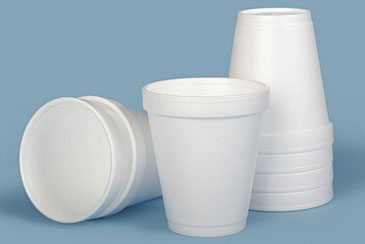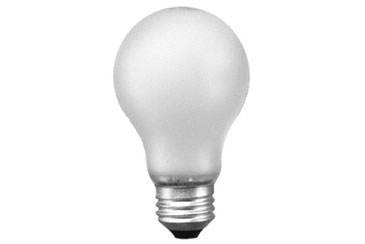NSU Newsroom
SharkBytes
Horizons
This version of NSU News has been archived as of February 28, 2019. To search through archived articles, visit nova.edu/search. To access the new version of NSU News, visit news.nova.edu.
This version of SharkBytes has been archived as of February 28, 2019. To search through archived articles, visit nova.edu/search. To access the new version of SharkBytes, visit sharkbytes.nova.edu.
Other NSU News Sources
News Releases Archive
Contact
Division of Public Relations and Marketing Communications
Nova Southeastern University
3301 College Avenue
Fort Lauderdale, Florida 33314-7796
SharkBytes Archives
SharkBytes Categories
- Academics
- Alvin Sherman Library
- Athletics
- Campaign Corner
- Community News
- Featured Center Stories
- News and Upcoming Events
- NSU Achievements
- NSU Alumni Spotlight
- NSU Art Museum Fort Lauderdale
- NSU Camps
- NSU Health Care Centers
- NSU Research Spotlight
- Nutrition Tips
- Looking Ahead
- Pride Bites
- Recreation and Wellness
- Regional Campuses
- Staying Green
- Student Affairs
- University School
Contact
Division of Public Relations and Marketing Communications
Nova Southeastern University
3301 College Avenue
Fort Lauderdale, Florida 33314-7796
Going Green: Top 10 Household Products to Avoid
(Source: www.familyeducation.com)
Small steps can make a big difference when it comes to saving the Earth. If you are ready to start going green, take a look at this list of 10 items you should avoid buying and using in your home. Some of these items not only hurt the Earth, they could also be harmful to your family! Brace yourself – you may be surprised at some of the items on the list, and may think it’s too difficult to find eco-friendly choices. However, hang in there – we suggest alternative choices to help make these eco-friendly changes a bit easier.
Styrofoam Cups
 Styrofoam is not biodegradable, which means it’s here forever. Next time, get your coffee to go in a reusable coffee mug or thermos. Skip the fast food, and use glass and metal storage containers whenever possible.
Styrofoam is not biodegradable, which means it’s here forever. Next time, get your coffee to go in a reusable coffee mug or thermos. Skip the fast food, and use glass and metal storage containers whenever possible.
Paper products and plastic utensils
Properly managed, paper is a renewable resource. But many of us tend to use more paper products than necessary. Paper towels and napkins are particularly wasteful of forest resources, landfill space, and your money. If you do purchase paper towels or napkins, make sure you buy an eco-friendly variety. A better alternative is to use cloth napkins at meals, and rags, sponges, or towels to clean up messes.
Like paper products, plastic utensils rate high on the waste scale. Most disposable plastic utensils are used once and thrown away, rather than recycled. Since they are not biodegradable, they will live on forever in the environment. Consider washing and reusing plastic utensils, or stick to regular cutlery or portable metal mess kits.
Bleached coffee filters
Dioxins are chemicals formed during the chlorine bleaching process. Dioxins contaminate groundwater and air, and have been linked to cancer in both humans and animals. If you are a coffee drinker, make sure you buy eco-friendly unbleached filters, which are healthier for both you and the environment.
Overpackaged food and products
How often do you buy products that are wrapped in layers of heavy plastic, bubble wrap, or mounds of packing peanuts? Excess packaging wastes resources and costs you more money. A large portion of the trash in American households comes from packaging, which contributes to our overflowing landfills. Whenever possible, buy products in bulk, without excess packaging. If you must buy smaller sizes, look for products that are packaged in recycled or recyclable materials. Take a stand and let companies know that you will not buy their overpackaged products. And when you pack your own parcels for shipment at the post office, do so sparingly.
Tropical hardwoods
Teak and mahogany are beautiful, long-lasting woods. Demand for these woods has increased their harvesting from tropical rainforests, where over half of the planet’s plant and animal species reside. Help protect the rainforests. Next time you are in the market for wood furniture, make sure it’s manufactured through certified forestry programs. Even better, consider purchasing products made from bamboo, a highly renewable resource that causes less damage to the environment.
Household cleaners
Many household cleaning products contain hazardous ingredients. Rather than purchasing products with scary warning labels, try to buy natural cleaners. They are better for your skin, your lungs, and your indoor environment. You can even make them yourself! Baking soda, vinegar, and salt are the main ingredients of a green-clean home. A clean home doesn’t have to be an unhealthy one.
High-octane gas
High-octane gas releases hazardous pollutants into the air and could be bad for your car. Today, only one in ten cars manufactured since 1982 requires high-octane gasoline. Try to use the lowest octane fuel recommended for your car. Other ways to cut down on gas usage include using public transportation, car pooling, biking, or walking to your destination.
Toys made with PVC plastic
PVC plastic, the least recycled plastic, is mainly used in construction. But it can also be found in everyday plastics, including children’s toys. Vinyl chloride, the chemical used to make PVC, is a human carcinogen. Other dangerous additives, such as lead and cadmium, are sometimes added to PVC to keep it from breaking down. These additives are particularly dangerous in children’s toys. Make sure you know what materials your child’s toys are made from. Check out our toy recall page to see if your child’s toys are on the list. Avoid purchasing plastic toys; opt for toys made of wood, organic cotton, or other natural materials.
Incandescent bulbs
 With relatively inexpensive compact fluorescent lightbulbs (CFLs) available, it makes no sense to buy old-style bulbs for most applications. CFLs don’t radiate light the same way as conventional bulbs, but they use 75% less energy. Make sure you dispose of CFL lightbulbs properly, because they contain a small amount of mercury. Other ways to save energy at home include turning off lights and appliances when not using them, using fans instead of an air conditioner in the summer, and lowering the thermostat at bedtime during the winter months.
With relatively inexpensive compact fluorescent lightbulbs (CFLs) available, it makes no sense to buy old-style bulbs for most applications. CFLs don’t radiate light the same way as conventional bulbs, but they use 75% less energy. Make sure you dispose of CFL lightbulbs properly, because they contain a small amount of mercury. Other ways to save energy at home include turning off lights and appliances when not using them, using fans instead of an air conditioner in the summer, and lowering the thermostat at bedtime during the winter months.
Disposable batteries
Most of the 15 billion batteries manufactured each year are alkaline batteries, which are discarded after their life cycle. Batteries that are thrown away and taken to landfills break down and leak chemicals into the groundwater. With so many electronic devices surrounding us, it makes environmental and financial sense to switch to rechargeable Nickel Metal Hydride (NiMH) or Lithium Ion (Li-Ion) batteries. Do your research on eco-friendly batteries; you’ll limit the amount of toxins entering the groundwater, and save yourself some money.